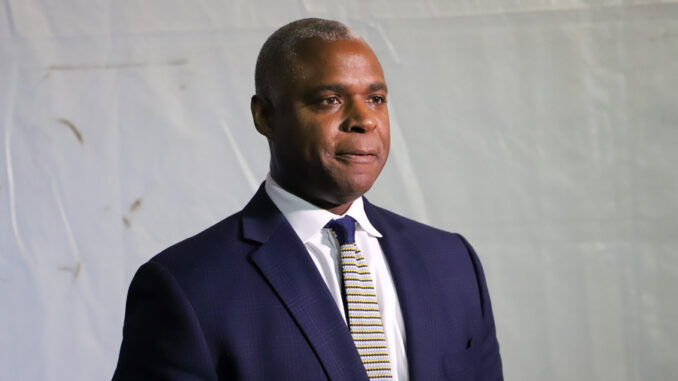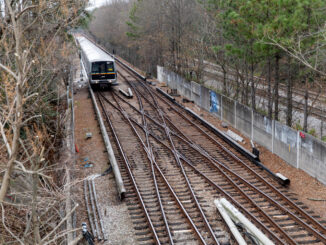
(The Center Square) — The Metropolitan Atlanta Rapid Transit Authority recently unveiled the first of its new railcars for its network. The $646 million cars are expected to start service in 2025.
MARTA General Manager and CEO Collie Greenwood spoke with The Center Square during the event about what’s next for the transit agency, funding and possible expansion to new areas.
What investment might be next, and what might MARTA need moving forward now that the agency is halfway through one investment?
MARTA is heavily invested in the lines and the dots. The lines is a corridor of travel, of which you can really say that this $646 million investment is a part of it. The dots is another part of our … transit-oriented development, making sure that wherever this train goes, there are also economic development features and … in our wake, we’re leaving a better Atlanta.
What do you see from an investment standpoint, from the state or the federal government? Do you think there needs to be more investment from either or both of those levels?
I want to be careful not to sound ungrateful because we are so grateful for our federal partners, our state partners, our jurisdictional partners. There’s a lot of economic support. And beyond the economics, there’s a lot of support in general for transit and what it can do for the community. Of course, if the opportunity presents itself for more funding, more structured funding, and more long-term funding, MARTA would love to take advantage of that. But it’s whatever we can get that we can pass on to the people of metro Atlanta, that’s what’s important to us.
Cobb County used to have an interurban rail line between Atlanta and Marietta that was removed 75 years ago. What would it take to run service into Cobb County and other areas that traditionally have said “no?”
It really comes down to generational thought. It comes down to people recognizing that the way we’re going in those areas that don’t have transit, it’s just not sustainable. …MARTA’s got a role to play too. The more attractive we can make our system, the more of this kind of thing we can do, the more attractive it’ll appear to those that traditionally don’t want transit. But as we look around the world, those world-class cities, …they enjoy and embrace public transit, and we’re going to get there.
Is there such a thing as too much money to spend? From a taxpayer standpoint, how do you say this amount is worth the investment?
We are nowhere near the tipping point, quite frankly. I think as long as we realize that transit, even for those that never stepped foot on a transit vehicle, the importance of transit is immeasurable. You take, for example, someone that works in a hospital, someone that prepares the medication, someone that works in a factory that prepares a product, for those that never stepped foot on transit, those folks are still depending on public transit. So, the more we can do to bring about a reliable public transit system, then the more reliability we’ll have in our lives in general. And frankly, I want us to get to the day when everyone is riding public transit.
This article was published by The Center Square and is republished here with permission. Click here to view the original.




